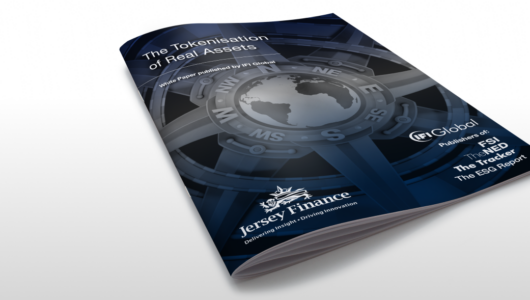Can you give an overview of the current state of the tokenisation market as it relates to real assets?
Elliot Refson: Firstly, it is important to make the distinction between tokenisation and digitalisation. Digitalisation is the entire process of using blockchain, whereas tokenisation is just one element of that process – the creation of a token.
Jersey is a real assets jurisdiction and, as we see it, the future of real assets clearly lies in digitalisation. We are seeing the industry gear up for that transition, with law firms establishing digital funds teams, managers creating their first digital funds and other business advisers getting up to speed with the nuances of the market. We are currently in the early stages of this transformation, but we have already seen a move away from funds being held in investment vehicles in favour of corporate vehicles, and we believe that the next step is for assets to be held in a digital form.
What are the benefits of digitalisation and what opportunities and challenges does it present?
ER: There are three main benefits to digitalisation: transparency, operational efficiency and automation. Depending on what structure is used, a further benefit can be greater accessibility and liquidity, but it is important to understand that increasing accessibility does not necessarily lead to increased demand, and therefore that increased liquidity cannot be guaranteed.
Philip Pirecki: The real challenge at the moment is maintaining the link between the digitalised product and the real asset. If we were talking about a building, for example, it would be one thing to digitalise the property, but it is quite another to have that owner officially on record as owning it. There is a challenge around taking something that is digitised and bridging it to something that is ‘real’.
ER: How that challenge is addressed will differ from jurisdiction to jurisdiction. If you take a physical asset, then the value and ownership of that is crystal clear. But in the world of corporate vehicles, ownership is split into shares and recorded on a share register, which doesn’t easily lend itself to digitalisation. So that is a challenge.
PP: This is a major part of the plumbing issue that people do not always think about when it comes to digitalisation. People want to distribute things globally and have massive pools of liquidity, but in the back end of the system, linking real assets and the official record of ownership is a challenge that is being addressed differently by every jurisdiction.
What are the implications for fund domiciles and how might jurisdictions and structures need to adapt to greater digitalisation?
ER: If you put the current situation into a wider historical context, we have seen that jurisdictions that do not evolve simply die out or lose business. This was the case with hedge funds in the Caribbean, when other jurisdictions in the region turned up with a cheaper product and stole their lunch. More recently, Jersey has been the beneficiary of the Cayman collateralised loan obligation market because that jurisdiction did not evolve to support that market, and we are starting to see the same phenomenon occur across other asset classes.
The digitalisation of real assets is a similar trend in that it creates both a threat and an opportunity for jurisdictions. It is clearly the future direction of the industry, and as such jurisdictions need to evolve and adapt to managers’ needs in the same way that those managers do in order to position themselves for the evolving industry.
One thing that we do very well in Jersey is taking a joined-up approach to this type of evolution, where industry, government and our regulator discuss such market-changing trends directly. Over the years that has led to a lot of innovation, including our opt-in, optout approach to the European Union’s Alternative Investment Fund Managers Directive, and more recently we have formed a committee to bring together industry leaders, regulators and government to discuss and address the digitalisation of real assets.
We already have several digitalised funds operating within Jersey’s regulatory regime, so the framework is already in place, but the focus now will be on extrapolating that model to cover real assets.
What is the future direction of travel in the digitalisation space and what impact might it have on the private funds industry?
ER: What we have discussed so far is the path to the future, with the only unknown variable now being the length of time that it is going to take to get there. Our recent white paper, The Tokenisation of Real Assets, considers the projected growth of the tokenisation market and forecasts that it will grow into a $1.6 trillion market by 2030.
We have met with several lawyers in the US and the UK involved in this space who are putting together digitalised funds teams and understand the trajectory of the market.
We also know of numerous examples of these funds being launched but given the current state of play, each one is complicated and bespoke. The next step will be for this process to increase commoditisation, with products being built up around these structures.
Most of the investors that choose to use Jersey are institutions, so our focus will be that part of the investor universe, while others may focus more on retail. What is certain is that products will emerge to support progress, but first the market must resolve some of the complex issues related to regulatory challenges, legal disputes, scalability, governance and domiciliation of tokenised real assets.
PP: In terms of the direction of travel, the technology for tokenisation is already developed, but it is the regulatory landscape which will present a challenge by lagging behind market events.
Different jurisdictions will address this challenge in different ways, but Jersey’s ambition is to be actively involved in the evolution of the market and be at the forefront of setting standards that will be transformative for real assets moving forward.
This interview was published in Private Funds CFO.



